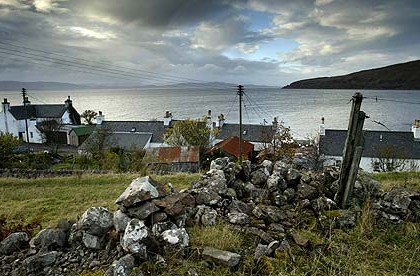
Content vs Contact
I recently flew to Inverness, to visit the Highlands and Islands Enterprise Agency, to talk about well-being in Remote Highland Communities, and how large corporates can support and learn from these groups. This was my first visit to the north of Scotland and I hadn’t really appreciated the challenge that these communities – some less than an hour from Inverness – face. These communities are typically fairly self sufficient and provide local support for the elderly and the infirm, however the challenges of loneliness and isolation still prevail and it was sad to hear that this region has one of the highest suicide rates in the UK.
for the elderly and the infirm, however the challenges of loneliness and isolation still prevail and it was sad to hear that this region has one of the highest suicide rates in the UK.
I was up there to look at how large corporates could make a difference in the health and well-being of these communities, and what their future needs are likely to be. Aging populations are a fact of many communities, however the particular dynamics of these more remote settlements makes this an ever increasing issue for the support systems that are, or are not, in place.
Anyway you may ask what has this got to do with the postal service? One of the things that struck me was the role of the postal service in these remote environments. Not only do they bring the letters and parcels, but they perform a real social service, and one that although may be recognised, may be under threat with cost cutting and potential privatisation of the Royal Mail in the UK. These communities depend on not the content of the mail, but on the contact it brings.
One story was related to a son, living in London, who sends his mother a postcard every week – not that he is on holiday every week but it means that the postman will call at his mother’s house on a regular basis to check and see if she is OK. Is this a good use of the post? Is it value for money? Well, of course not. But for this family it is comfort for all parties and definitely worth the price of a stamp!
With the continuing decline in mail volumes and the increasing dependence on online services, the future of these rural postal services must be under threat, however the need for them is actually increasing as the communities grow older and more dependent. I don’t believe this is a problem solely for the north of Scotland, as recent stories in the press and media in the UK state that loneliness is an increasing problem in all areas of the UK – both town and country. The postal service offers a unique service – both social and commercial and somehow we need to understand how we can keep the service alive and profitable for the future.
Making sure both content and contact is maintained for the good of society, wherever we live.












